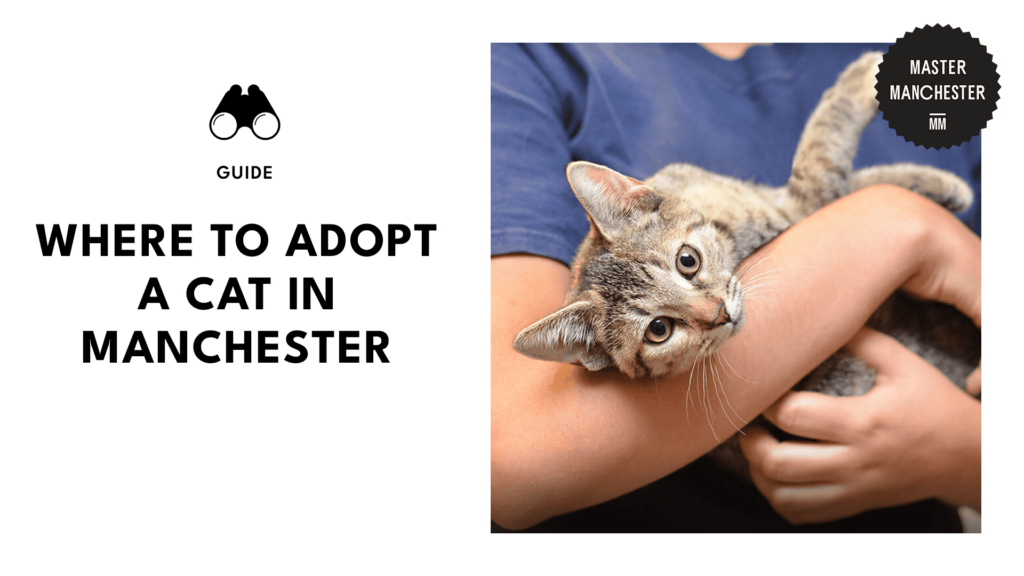Categories > Guides and Tips

What People Think About the Manchester Accent
- Do people like the Manchester accent?
- Survey Results on Attractiveness of UK Accents:
- How do people perceive the Manchester accent?
- Background Information on the Manchester Accent
- Distinct Features of the Manchester Accent
- Famous People with the Manchester Accent
- Liam Gallagher
- Steven Patrick Morrissey
- Tony Wilson
- Maxine Peake
- Johnny Marr
- Peter Hook
- The Manchester Accent: Sociolinguistic Perspectives
- How the Manchester Accent is Linked to Social Class
- How the Manchester Accent is Perceived in Different Regions
- How Attitudes Towards the Manchester Accent Have Changed Over Time
- Our Final Thoughts
- FAQs about the Manchester Accent
Accents are a fascinating aspect of language that can reveal a lot about a person’s regional and cultural background. In fact, based on a study, most of the world’s population considers a person’s accent a significant factor in attractiveness!
In the United Kingdom, countless accents are associated with different regions and social classes. Overall, accents are so crucial that many employers who were surveyed admitted to discriminating against people depending on their accents.
One of the most recognisable accents in the UK is the Manchester accent, which is commonly heard in the northwestern city of Manchester.
If you are curious as to how the Mancunian accent is perceived, read on as we will explore what people think about the Manchester accent, its distinct features, and how it is perceived by others.
Do people like the Manchester accent?
People in the UK do not consider the Manchester accent attractive, as only 3% of respondents to the survey conducted by YouGov rated it as attractive, which places it on par with other regional accents (Brummie and Scouse).
Survey Results on Attractiveness of UK Accents:

| UK Accent | % Attractive |
| Received Pronunciation (RP) | 29% |
| Yorkshire | 17% |
| Mancunian (Manchester) | 3% |
| Brummie (Birmingham) | 3% |
| Scouse (Liverpool) | 2% |
| Glaswegian | 2% |
| Cockney (London) | 1% |
A survey conducted by YouGov in 2019 asked respondents in the UK to rate the attractiveness of various accents.
The results showed that the Received Pronunciation (RP) accent, which is often associated with the upper class and is sometimes called “Queen’s English,” was the most attractive, with 29% of respondents rating it as such.
The Yorkshire accent, which is spoken in the north-eastern county of Yorkshire, came in second, with 17% of respondents rating it as attractive. The Mancunian accent, however, received a much lower rating, with only 3% of respondents considering it attractive.
This places it on par with other regional accents such as the Brummie accent (from Birmingham) and the Scouse accent (from Liverpool).
The Glaswegian accent (from Glasgow) and the Cockney accent (from London) received the lowest ratings, with only 2% and 1% of respondents, respectively, finding them attractive.
The survey results suggest that the Manchester accent is not considered particularly attractive by people in the UK.
How do people perceive the Manchester accent?

Despite the low rating of the Mancunian accent in the YouGov survey, there are still many people who appreciate the accent and its unique qualities.
A survey conducted by the Manchester Evening News in 2017 found that 65% of respondents in the Manchester area were proud of their accent.
Some people may have negative perceptions of the Manchester accent due to stereotypes or prejudices associated with the region or social class. However, there are also positive aspects of the accent, such as its warmth and friendliness.
Background Information on the Manchester Accent

People in Manchester have the Mancunian accent, a regional accent that is spoken in Manchester and the surrounding areas.
The history of the accent can be traced back to the Industrial Revolution, when Manchester was a hub for manufacturing and trade.
The accent has been influenced by various factors, including immigration, social class, and regional dialects.
The Manchester accent is distinct from other accents in the UK, with some notable differences in pronunciation and vocabulary.
For example, the Mancunian accent often features a flat or neutral intonation pattern, whereas other accents in the UK may have more pronounced intonation patterns.
Additionally, the accent includes a unique vocabulary and slang that are specific to the Manchester region.
There are several famous people who are associated with the Manchester accent, including musicians Liam and Noel Gallagher of the band Oasis, comedian Victoria Wood, and footballer Ryan Giggs.
The Mancunian accent has gained recognition and popularity in recent years, with many people around the world attempting to imitate it.
Today, the accent continues to evolve and change as Manchester and its surrounding areas grow and develop, reflecting the diverse influences of their people and culture.
Distinct Features of the Manchester Accent

| Word/Phrase | Meaning |
| Manc | Short for Mancunian (someone from Manchester) |
| Our kid | Brother or close friend |
| Ginnel | Alleyway or narrow passage |
| Chuddy | Chewing gum |
| Sound | Good or okay |
| Mither | Annoy or bother |
| Barmy | Crazy or foolish |
The Mancunian accent includes several distinct features that set it apart from other accents in the UK.
Pronunciation differences:
- The letter “a” is often pronounced as a short “ah” sound, as in “bath” or “dance”
- The letter “o” is often pronounced as a long “o” sound, as in “stone” or “alone”
- The letter “u” is often pronounced as a short “uh” sound, as in “butter” or “cup”
- The letter “e” is often pronounced as a short “eh” sound, as in “pen” or “men”
- The letter “i” is often pronounced as a short “ih” sound, as in “big” or “sit”
In addition to these pronunciation differences, the Manchester accent also includes a unique set of vocabulary and slang words. Some examples of commonly used Mancunian words and phrases include:
- “Manc” – a shortened form of “Mancunian,” which is a term used to refer to someone from Manchester.
- “Our kid” – a term of endearment used to refer to a brother or close friend.
- “Ginnel” – a word used to describe an alleyway or narrow passage.
- “Chuddy” – a slang term for chewing gum.
- “Sound” – a word used to mean “good” or “okay.”
- “Mither” – a word used to mean “annoy” or “bother.”
- “Barmy” – a word used to mean “crazy” or “foolish.”
Intonation patterns are another important aspect of the Manchester accent. Mancunians tend to speak with a rising intonation pattern, which means that their pitch tends to go up at the end of sentences.
This can give the impression that they are asking a question, even when they are making a statement.
Overall, the Manchester accent is characterised by its unique pronunciation, vocabulary, and intonation patterns. While some people find the accent charming or endearing, others may find it difficult to understand or unattractive.
Famous People with the Manchester Accent

The Manchester accent has had a significant presence in popular culture, particularly in the music, film, and television industries.
Many famous individuals with a Manchester accent have helped shape the city’s cultural identity and contributed to its reputation as a hub of creativity and innovation.
Liam Gallagher

One of the most well-known figures with a Manchester accent is Liam Gallagher, the former lead singer of Oasis. Born and raised in Manchester, Gallagher’s distinctive voice and brash personality have become synonymous with the city’s musical legacy.
He has been widely praised for his songwriting abilities and has sold millions of records worldwide.
Steven Patrick Morrissey

Another notable individual with a Manchester accent is Morrissey, the former frontman of The Smiths.
Known for his introspective lyrics and idiosyncratic vocal style, Morrissey has been hailed as one of the most influential songwriters of his generation.
His music has been celebrated for its unique blend of indie rock, punk, and folk influences, and his performances have earned him a devoted fan base around the world.
Tony Wilson

Tony Wilson is another important figure with a Manchester accent. As the founder of Factory Records, Wilson was instrumental in shaping Manchester’s music scene in the 1980s and 1990s.
He signed and promoted many influential bands, including Joy Division, New Order, and the Happy Mondays, and helped establish Manchester as a centre of alternative music culture.
Maxine Peake

Maxine Peake is a successful actress with a Manchester accent, known for her roles in “Shameless,” “Silk,” and “Black Mirror.” She has been praised for her versatility and her ability to convey complex emotions on screen.
Peake’s performances have earned her critical acclaim and have helped raise the profile of Manchester’s thriving theatre and film scenes.
Johnny Marr

Johnny Marr, the co-founder of The Smiths, is also known for his distinctive Manchester accent.
A prolific songwriter and guitarist, Marr has worked with a wide range of artists over the course of his career, including Talking Heads, The Pretenders, and Modest Mouse.
His contributions to Manchester’s music scene have been widely recognised and celebrated.
Peter Hook

Peter Hook, the co-founder of Joy Division and New Order, is another influential figure with a Manchester accent. Known for his distinctive bass playing style and his energetic stage presence,
Hook has helped define Manchester’s post-punk and electronic music scenes. He has continued to release music and perform with various projects in recent years, further cementing his place in Manchester’s cultural history.
The Manchester Accent: Sociolinguistic Perspectives

How the Manchester Accent is Linked to Social Class
The Manchester accent is closely linked to social class and regional identity. Historically, the accent was associated with the working-class communities of Manchester and was often stigmatised as a sign of low status or lack of education.
However, in recent years, there has been a growing appreciation for the linguistic diversity of the city, with many Mancunians embracing their accent as a source of pride and identity.
How the Manchester Accent is Perceived in Different Regions
Attitudes toward the Manchester accent also vary depending on the region. For example, people from other parts of the UK may have different perceptions of the accent than those who live in Manchester.
Additionally, the accent may be viewed differently depending on the context, such as in the workplace or in social settings. Over time, attitudes toward the Manchester accent have evolved.
While the accent was once stigmatised, it is now widely recognised as an important aspect of the city’s cultural heritage.

How Attitudes Towards the Manchester Accent Have Changed Over Time
In recent years, there has been a renewed interest in regional accents and dialects in the UK, with many people celebrating linguistic diversity and the unique qualities that different accents bring to the table.
In fact, many linguists argue that regional accents should be celebrated, not stigmatised, as they reflect the rich cultural history and diversity of the UK.
As society becomes more diverse and multicultural, it is important to recognise and value different accents and dialects as an important part of our shared cultural heritage.
Moreover, research has shown that having a regional accent can actually be an asset in certain situations, such as job interviews or public speaking.
A study conducted by the University of Manchester found that having a regional accent can make a person appear more trustworthy and sincere, particularly in a business context.
Our Final Thoughts
While the Manchester accent may not be perceived as the most attractive accent in the UK, it is a unique and important part of the city’s cultural heritage.
As attitudes towards regional accents continue to evolve, it is important to recognize the value of linguistic diversity and celebrate the unique qualities that different accents bring to our society.






